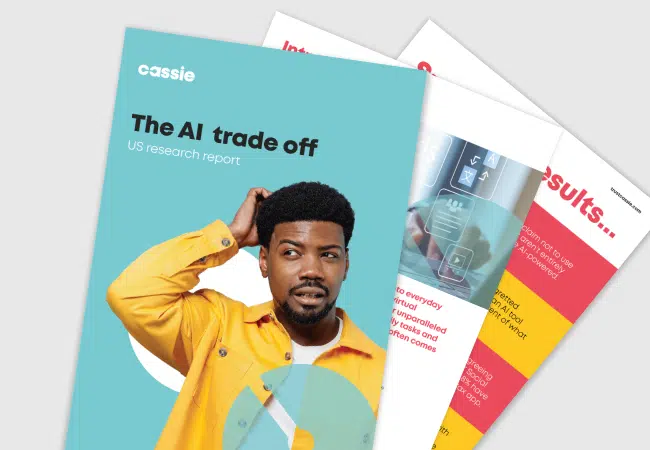Apple’s integration of ChatGPT: Implications for data privacy
Posted: June 25, 2024
On June 10th, Apple announced the integration of ChatGPT across its new devices, with CEO Tim Cook emphasizing the potential to elevate the company’s products to “new heights.”
This integration, branded as “Apple Intelligence,” will embed AI capabilities into various apps and services, from refining message drafts to providing smart calendar suggestions.
However, this move raises significant questions about data privacy, from where consumer data will be stored to what this means for the future of the previously locked down Apple systems.
Enhancing Apple products with ChatGPT
“Apple Intelligence” will be integrated into every app and product, enhancing functionalities such as writing assistants, smarter virtual assistants like Siri, and advanced content creation tools in apps like Notes and Pages. Siri, for instance, will utilize ChatGPT to access user messages and emails, offering more accurate and contextual responses.
This will be similar to Microsoft’s AI system Co-pilot, though without the premium pricing attached.
Privacy concerns and data handling
The integration of ChatGPT necessitates connectivity with external servers, as all processing cannot be conducted on-device. This is a surprising move for Apple, who have always been focused on the strictest privacy policies with their devices.
Apple has assured users that while some data processing will occur on their devices, more intensive tasks will be offloaded to the cloud without storing any user data. This should mean that ChatGPT will not have access to maintaining data sent from any Apple device.
Consumer backlash
Following the announcement, Apple’s stock experienced a drop, reflecting consumer apprehensions about privacy.
Apple, which has a reputation for prioritizing user privacy, faced immediate scrutiny from users concerned about data usage and consent. Previously it was their overreaching control that landed them in trouble with the EU, forcing users to only use Safari and not download any apps from outside the app store.
Now they could face similar scrutiny to Google and Microsoft as they attempted to integrate their AI products earlier this year, with Google having to roll back a new feature in May after its erroneous answers went viral. This is top of mind for consumers when thinking about whether AI will even enhance their experience.
Legislative and regulatory challenges
Apple’s iOS was designated a core platform service under the EU’s Digital Markets Act (DMA) in September 2023, which imposes strict antitrust obligations. It is unclear if these obligations will extend to the new ChatGPT integration.
The EU and the US are also scrutinizing similar AI collaborations, like the Microsoft-OpenAI partnership, raising concerns about compliance and competition. The Commission is currently considering opening a formal antitrust investigation into the Microsoft-OpenAI partnership worth €12 billion while the FTC opened an antitrust probe into the Microsoft-OpenAI partnership, along with other similar deals.
AI, data privacy, and consumer consent
AI’s reliance on vast amounts of data poses significant privacy challenges. This means that consumers are relying on ChatGPT owner OpenAI to keep their data safe and protect their personal information.
OpenAI, the owner of ChatGPT, has previously faced criticism in Europe for not aligning with the GDPR, leading to a temporary ban in Italy. This is bound to influence consumers’ opinions of the way that the data is being used.
As more companies integrate AI into their systems, we see consumers grow more and more wary of it – see the backlash against both Meta and Adobe as news of data being used to train AI hit social media.
Oliver Willis, partner at BDB Pitmans says that in its privacy policy OpenAI acknowledges that the information used to train ChatGPT includes personal data. “They stress that the training information is not used to profile people, or to learn about them, but some people will see the use of this data as inherently intrusive.” How will this affect Apple’s privacy policies?
Balancing innovation and privacy
So how will Apple be gaining consent for this new feature? As it is a core feature of its platform, how will consumers be able to opt-out of this service?
Apple’s new Private Cloud Compute technology – “a noteworthy leap in AI privacy and security,” said Krishna Vishnubhotla, VP of product strategy at mobile security platform Zimperium – seeks to balance data privacy with AI capabilities.
This technology allows most processing to occur on the device, with only necessary data sent to the cloud. Apple ensures that data exported for processing will have additional security measures and will not be stored indefinitely.
The company will also make related tools and software publicly available for third-party verification.
Expert opinions and future outlook
Industry experts have mixed views on Apple’s approach. Some, like Gal Ringel of Mine, believe Apple is setting a new standard for balancing innovation and privacy.
“With this announcement, Apple is paving the way for companies to balance data privacy and innovation,” said Gal Ringel. “The positive reception of this news, as opposed to other, recent AI product releases, shows that building up the value of privacy is a strategy that certainly pays off in today’s world.”
Others, like Elon Musk, remain skeptical. “It’s patently absurd that Apple isn’t smart enough to make their own AI, yet is somehow capable of ensuring that OpenAI will protect your security & privacy! Apple has no clue what’s actually going on once they hand your data over to OpenAI. They’re selling you down the river.”
Apple’s integration of ChatGPT represents a significant leap in AI functionality for its devices. However, this move brings considerable privacy concerns that Apple will need to address carefully to maintain user trust and comply with regulatory standards. The company’s innovative approach to privacy, through technologies like Private Cloud Compute, will be crucial in navigating these challenges. Apple’s commitment to transparency, data security, and obtaining informed consumer consent will be essential in successfully balancing innovation with privacy.


